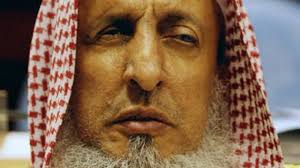Riyadh, Sep 17: Grand Mufti Sheikh Abdulaziz Al-Sheikh condemned violence against non-Muslims living in Islamic countries as well as attacks on Muslims after labeling them as infidels.
In a statement carried on Monday by the Saudi Press Agency (SPA), the Grand Mufti warned against dangers of takfeeri ideology (the practice of one Muslim declaring another as an unbeliever).
“Given the dangerous developments in the Muslim world, I would like to warn against the danger of attacking Muslims and those (non-Muslims) under Muslim protection,” he said.
Al-Sheikh, who is also head of the Board of Senior Ulema and the Scientific Researches and Ifta Department, condemned such calls which cause the “shedding of blood of Muslims and of those living in their countries in peace.”
“Those extremists have invented the pretext of ‘takfeer,’ which makes light of the killing of Muslims and others who are protected,” he said while supplicating Allah to save the Muslim Ummah from this sedition through unity under the banner of the Holy Qur’an and the Prophet’s Tradition (Hadith).
“In view of the fast-moving dangerous developments in the Islamic world, it is very distressing to see the tendencies of permitting or underestimating the shedding of blood of Muslims and those under protection in their countries. The sectarian or ignorant utterances made by some of these people would benefit none other than the greedy, vindictive and envious people. Hence, we would like to draw attention to the seriousness of the attacks on Muslims or those who live under their protection or under a pact with them,” Al-Sheikh said, quoting a number of evidences from the Qur’an and Hadith.
The Grand Mufti said that the term the infallible selves (Al-Ma’asuma) in Islam is used to denote Dhimmis (non-Muslim citizens who live under Islamic sovereignty, and enjoy a special status) and those who entered into a pact with Muslims. “Whoever enters into the guardianship of Muslims with a security contract or pledge, then his life and wealth are infallible and they cannot be subjected to any sort of injustice. If anyone kills such a person, the killer won’t have the smell of paradise,” he said, quoting a saying of the Prophet (peace be upon him).





Comments
Add new comment